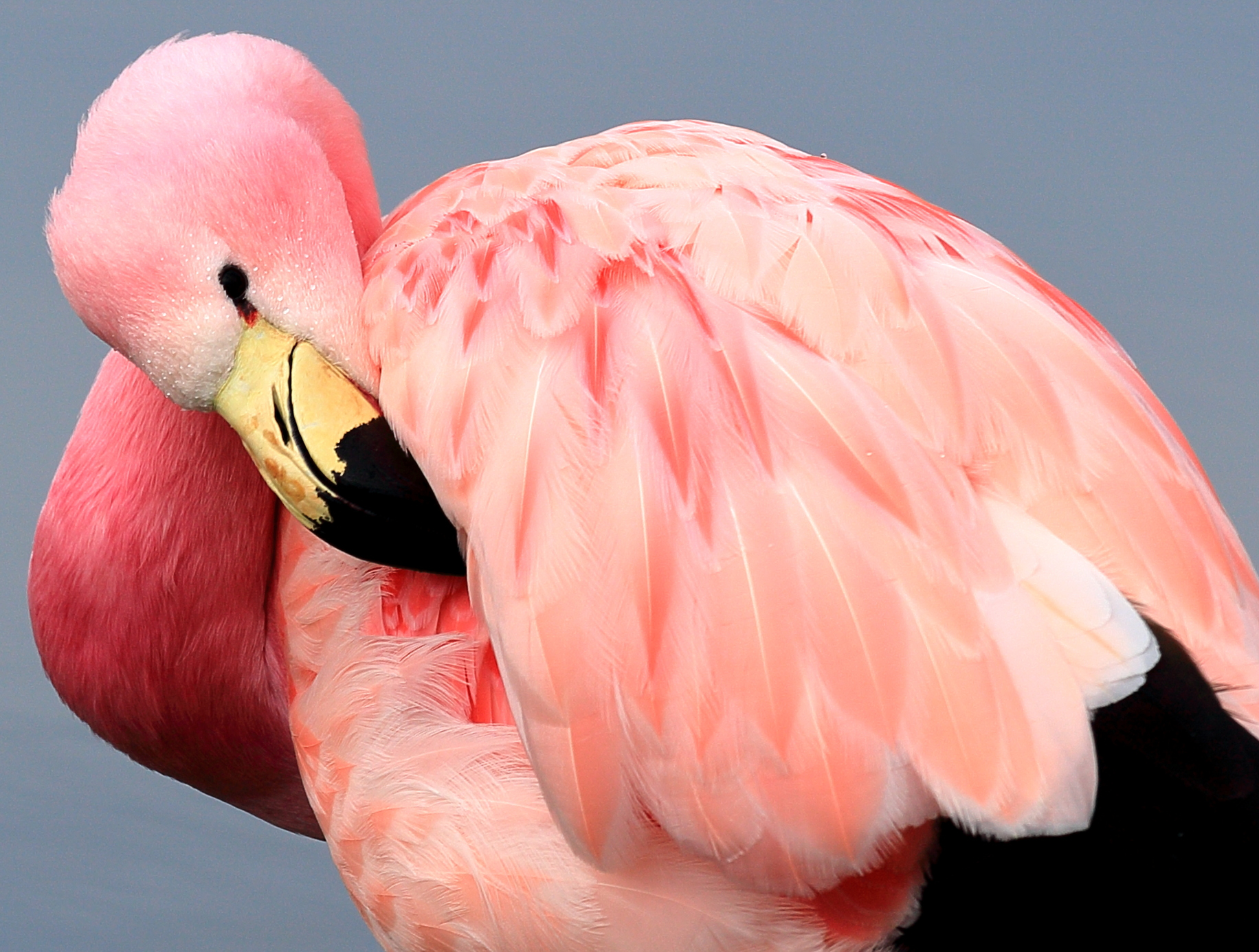Scientists may have finally figured out how flamingos can stand on one leg, not fall over

A free daily email with the biggest news stories of the day – and the best features from TheWeek.com
You are now subscribed
Your newsletter sign-up was successful
For flamingos, standing on one leg might actually be easier than standing on two. A report published Wednesday in The Royal Society's Biology Letters revealed that flamingos might literally be built to stand on one leg, which would explain how they're able to do so while they sleep without toppling over.
When the researchers' first idea for testing flamingos' balance — walking over to the birds in a zoo and giving them "a little prod" — was rejected, they turned to studying flamingo cadavers. To their surprise, they found that while a dead flamingo can't stand on two legs, it can still balance on one. When the researchers began studying live flamingos — by watching them until the birds dozed off — they found out flamingos' balance became better as they fell asleep.
That led researchers to realize that flamingos' fantastic balance might have something to do with their anatomy, specifically a built-in "stay mechanism." The Washington Post explained the phenomenon:
The Week
Escape your echo chamber. Get the facts behind the news, plus analysis from multiple perspectives.

Sign up for The Week's Free Newsletters
From our morning news briefing to a weekly Good News Newsletter, get the best of The Week delivered directly to your inbox.
From our morning news briefing to a weekly Good News Newsletter, get the best of The Week delivered directly to your inbox.
The bird's skeleton appears to be the key. As with humans, flamingos have two main joints on their leg. The one you can see, that bends backward, is not the knee. That's actually the bird’s ankle. Its knee, meanwhile, is hidden in the bird's features at the fatter part of its body.When the flamingo is ready to nod off, it lifts one leg and instinctively moves its body so its single foot isn't under its hip. Instead, it's centered directly under the carriage of bird. Meanwhile, pulling the other leg up forces the knee to bend, which the flamingo rests on. All the joints essentially snap into place.[...] As the flamingo remains nearly perfectly still while sleeping, gravity does the rest, keeping the bird in place. [The Washington Post]
Though the researchers might be one step closer to figuring out how flamingos stand on one leg, the question of why they do so remains a mystery. Flamingo studier Matt Anderson, of St. Joseph's University, pointed out to The Atlantic that if standing on one leg saved flamingos so much energy, "one would expect flamingos to employ the one-legged resting stance constantly."
A free daily email with the biggest news stories of the day – and the best features from TheWeek.com
-
 Is Andrew’s arrest the end for the monarchy?
Is Andrew’s arrest the end for the monarchy?Today's Big Question The King has distanced the Royal Family from his disgraced brother but a ‘fit of revolutionary disgust’ could still wipe them out
-
 Quiz of The Week: 14 – 20 February
Quiz of The Week: 14 – 20 FebruaryQuiz Have you been paying attention to The Week’s news?
-
 The Week Unwrapped: Do the Freemasons have too much sway in the police force?
The Week Unwrapped: Do the Freemasons have too much sway in the police force?Podcast Plus, what does the growing popularity of prediction markets mean for the future? And why are UK film and TV workers struggling?
-
 Ex-South Korean leader gets life sentence for insurrection
Ex-South Korean leader gets life sentence for insurrectionSpeed Read South Korean President Yoon Suk Yeol was sentenced to life in prison over his declaration of martial law in 2024
-
 Rubio boosts Orbán ahead of Hungary election
Rubio boosts Orbán ahead of Hungary electionSpeed Read Far-right nationalist Prime Minister Viktor Orbán is facing a tough re-election fight after many years in power
-
 Key Bangladesh election returns old guard to power
Key Bangladesh election returns old guard to powerSpeed Read The Bangladesh Nationalist Party claimed a decisive victory
-
 Epstein files topple law CEO, roil UK government
Epstein files topple law CEO, roil UK governmentSpeed Read Peter Mandelson, Britain’s former ambassador to the US, is caught up in the scandal
-
 Iran and US prepare to meet after skirmishes
Iran and US prepare to meet after skirmishesSpeed Read The incident comes amid heightened tensions in the Middle East
-
 EU and India clinch trade pact amid US tariff war
EU and India clinch trade pact amid US tariff warSpeed Read The agreement will slash tariffs on most goods over the next decade
-
 Israel retrieves final hostage’s body from Gaza
Israel retrieves final hostage’s body from GazaSpeed Read The 24-year-old police officer was killed during the initial Hamas attack
-
 China’s Xi targets top general in growing purge
China’s Xi targets top general in growing purgeSpeed Read Zhang Youxia is being investigated over ‘grave violations’ of the law